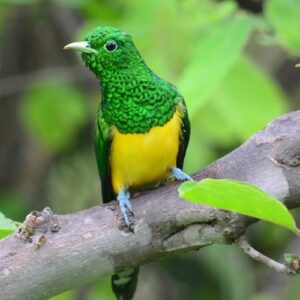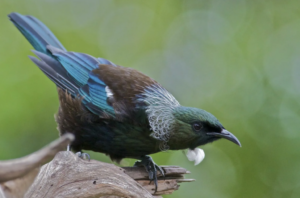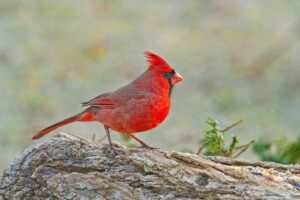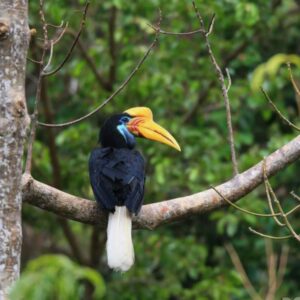His stunning bright orange throat is what makes him pop into view from amongst the canopy.
The Flame-throated Warbler
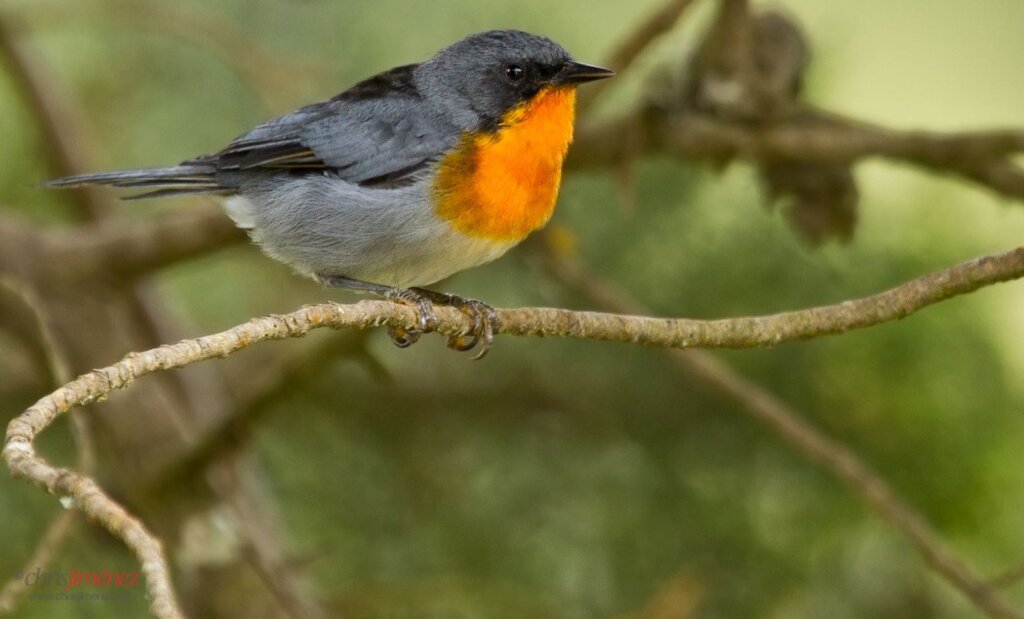
Photo Courtesy of Chris Jimenez/CC BY-SA 2.0
The flame-throated warbler (Oreothlypis gutturalis) is around 12 cm long and weighs in at 10 grams. The upper parts of this bird are grey, black on the back, lores, and lower ear coverts. The underparts, chin, throat, and breast are bright orange, almost vermillion in color. This colored patch is bordered by a dark band and contrasts strongly with the rest of this bird’s paler grey to white underparts. The bill of this bird is blank, its eyes are dark brown, and the legs and feet are pink to grey.
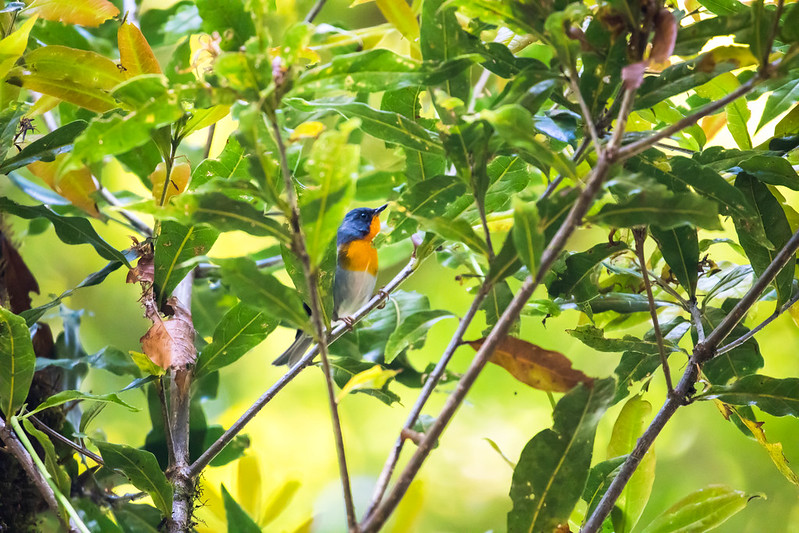
Photo Courtesy of Melissa McMasters/CC BY 2.0
Males and females look almost identical, however, the female is duller in appearance, and the male’s black mask is more extensive.
Juvenile birds are browner above and double below. They also have a weak black stripe and similar colored wing bars.
https://youtube.com/watch?v=JPr28c6AwJI%3Ffeature%3Doembed
This bird is a resident breeder restricted to the mountains of Costa Rica and Western Panama.
https://youtube.com/watch?v=JPr28c6AwJI%3Ffeature%3Doembed
Flame-throated warblers like to live up in the canopy, around woodland edges, and clearings with trees typically from 2100 meters up to the timberline.
https://youtube.com/watch?v=JPr28c6AwJI%3Ffeature%3Doembed
This bird likes to feed on insects such as caterpillars, spiders, and centipedes. It feeds by picking insects from the foliage with its sharply pointed bill.
https://youtube.com/watch?v=JPr28c6AwJI%3Ffeature%3Doembed
The nesting habits of this species are not well-known, however, up to 2 white eggs are laid in a cup-shaped nest in a sheltered position using epiphytes and or moss. This nest is either built in a tree or on a low bank between March and May.
https://youtube.com/watch?v=JPr28c6AwJI%3Ffeature%3Doembed
This species is regarded as of Least Concern on the IUCN Red List.
You can watch and listen to this bird right here in the video below:
https://youtube.com/watch?v=JPr28c6AwJI%3Ffeature%3Doembed
thenewsday

